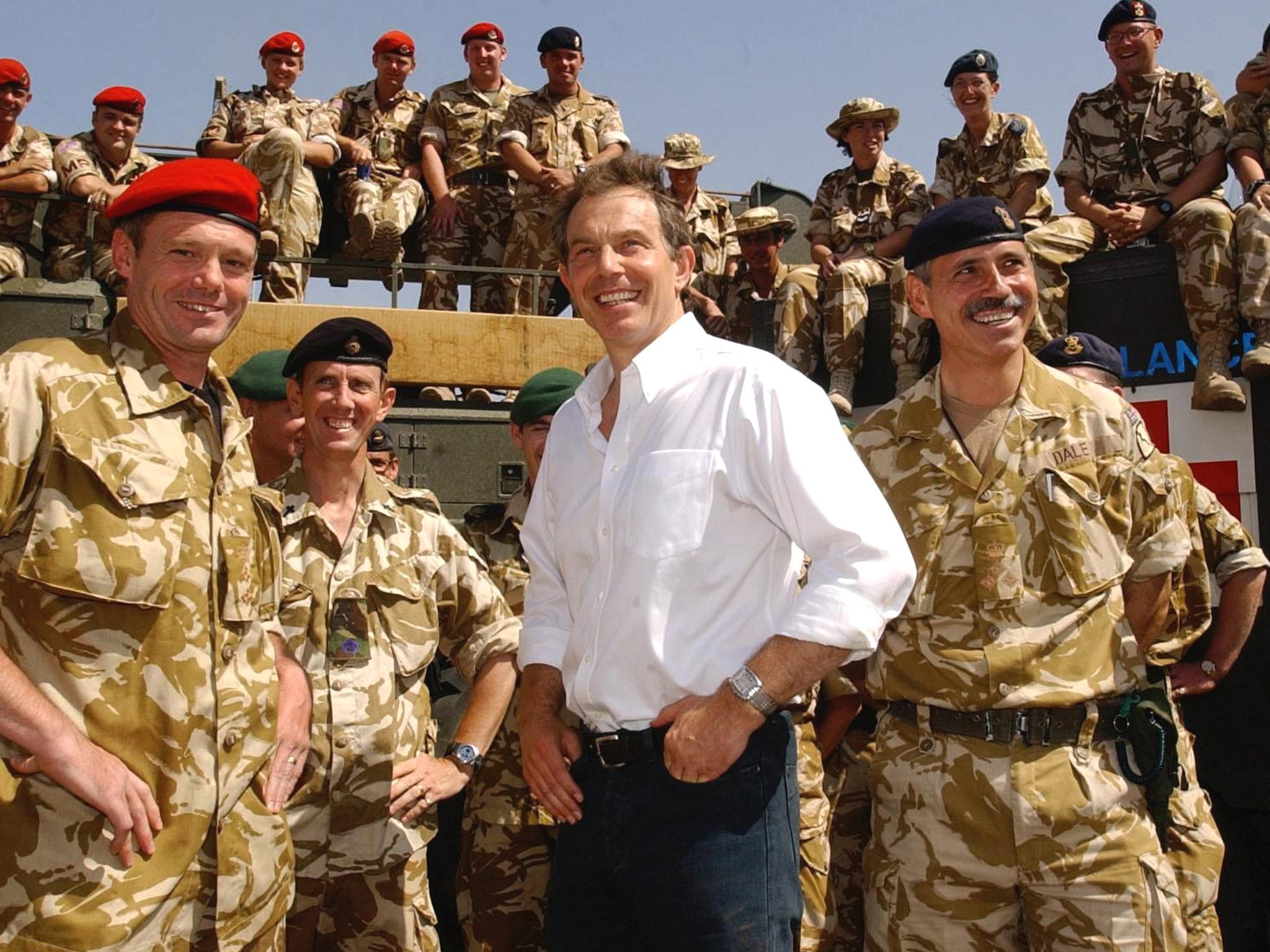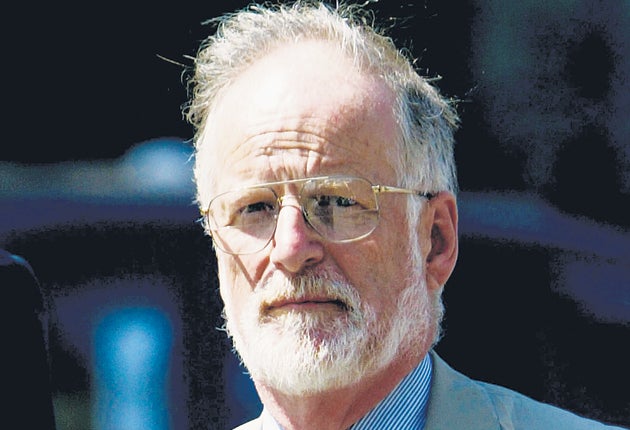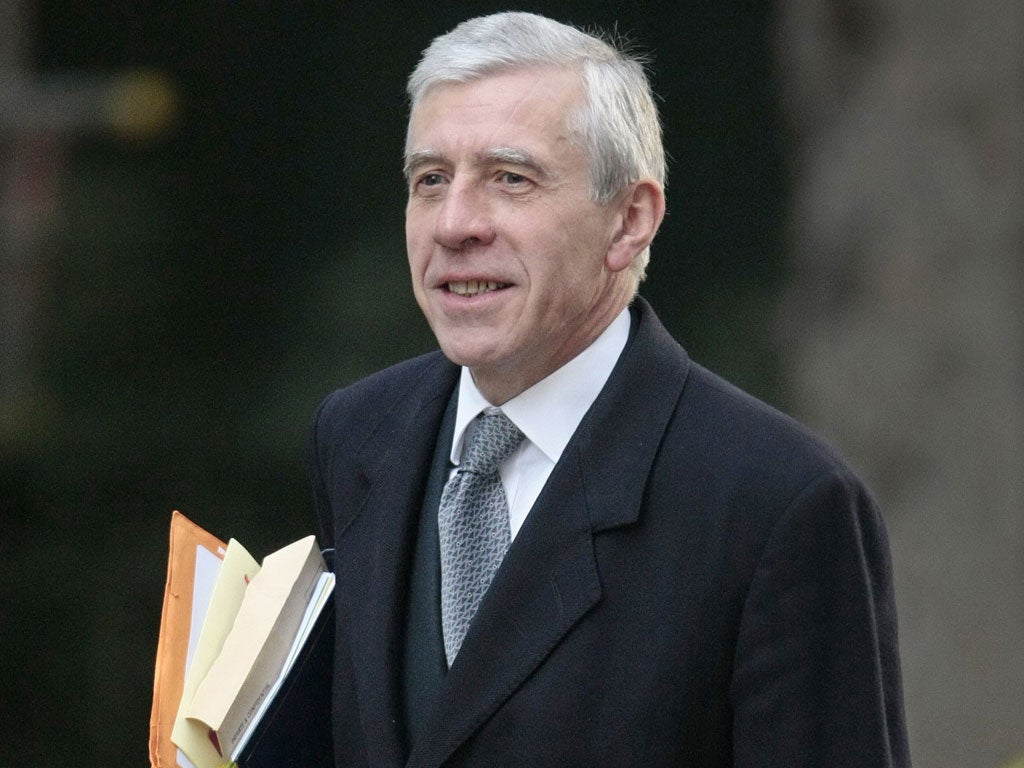The Chilcot inquiry: Recriminations and inquiries – the aftermath of the Iraq War
The Iraq Report – Part 3: The aftermath

Your support helps us to tell the story
From reproductive rights to climate change to Big Tech, The Independent is on the ground when the story is developing. Whether it's investigating the financials of Elon Musk's pro-Trump PAC or producing our latest documentary, 'The A Word', which shines a light on the American women fighting for reproductive rights, we know how important it is to parse out the facts from the messaging.
At such a critical moment in US history, we need reporters on the ground. Your donation allows us to keep sending journalists to speak to both sides of the story.
The Independent is trusted by Americans across the entire political spectrum. And unlike many other quality news outlets, we choose not to lock Americans out of our reporting and analysis with paywalls. We believe quality journalism should be available to everyone, paid for by those who can afford it.
Your support makes all the difference.Recriminations
In the United States, George Bush seemed to be able to ride out the waves of bad news from Iraq. In Britain, by contrast, Tony Blair was continually on the defensive, in particular over those weapons of mass destruction that did not exist. It was this issue that led to the lonely death of the weapons inspector Dr David Kelly.
That part of the story began soon after 6am on 29 May 2003 when Andrew Gilligan, defence correspondent for the Today programme on BBC Radio 4, broadcast a sensational claim that he had been told by someone high up in the security services that the spooks were aggrieved because the September dossier had been transformed on instructions from Downing Street. In a subsequent article for the Daily Mail, Gilligan named Alastair Campbell as the culprit. On the day of the broadcast, Tony Blair was visiting the troops in Iraq, with Campbell at his side. The next day he was in Warsaw. Trying to talk about Poland’s future in Europe, Blair was plagued with questions about Gilligan’s allegation.
When the Prime Minister’s party returned to London, Campbell began a relentless campaign to get the BBC to say that Gilligan was wrong. This included trying to find his source in the intelligence services. Dr Kelly came forward and admitted talking to the journalist, but did not admit to saying everything Gilligan had attributed to his unnamed source. His identity was soon leaked.
Gilligan claimed that he had spoken to more than one person, and was not prepared to name his principle source when subjected to hostile questioning by the Commons Foreign Affairs Select Committee. The committee insisted on questioning Dr Kelly. What he did not know as he gave evidence was that Gilligan had privately told a member of the committee that Dr Kelly had also spoken to another BBC journalist, Susan Watts. Confronted, Dr Kelly admitted speaking to her but said he did not recognise comments that Watts had used in her broadcast. But Watts had a recording to prove they were his – although whether Dr Kelly lied or simply became confused under pressure, no one knows. Afterwards, it probably dawned on him that he was going to be exposed, and would probably never work as a weapons inspector again. On 17 July, two days after his appearance at the committee, he went for a walk in woods near his Oxfordshire home. His body was found the following morning. He had died from an overdose of painkillers.
The inquiries
The death of Dr Kelly has found its way into mythology. There is a school of thought that says he did not kill himself but was assassinated to prevent him revealing the secrets behind the Iraq war. In the hope of dampening that kind of speculation, Tony Blair ordered a judge-led inquiry into the death. This was the Hutton inquiry, the first of three into the Iraq war, which ran from August 2003 to January 2004, eventually concluding that Dr Kelly’s death was a suicide, that the Government was not at fault, but that the BBC was. The BBC’s chairman, Gavyn Davies, and its director-general, Greg Dyke, resigned. Naturally, the Hutton report was denounced as a whitewash.

The next inquiry was a review of the intelligence reports by the former head of the civil service, Lord Butler, whose report came out in July 2004. While it was mildly critical of MI6’s weaknesses in checking the reliability of its sources, Lord Butler’s general conclusion was that the Iraq war happened because of the 11 September atrocities, not because faulty intelligence had caused the government to believe Iraq held WMDs.
In the light of that conclusion, it is worth asking why the WMDs issue, and the dodginess of the September dossier, have assumed such importance over the years.
One factor, curiously, is the BBC charter. The conditions under which BBC journalists work did not allow them to express a view on the wisdom or folly of going to war. If the Government had misled the public, however, their duty was to expose the falsehood. The “sexed up” dossier was a story into which they could sink their teeth and demonstrate independence from government control.
The WMD theme has also served the purposes of people who supported the Iraq war at the time, then wished they had not. Boris Johnson, for example, is now one of the war’s harshest critics, although he voted for it in March 2003 when Parliament’s vote made a difference. His explanation is that he was misled by Tony Blair. “I would like to understand more deeply on what basis a prime minister who, at that time, commanded so much trust, was able to persuade Parliament and the country and me to go for war in Iraq with absolutely catastrophic consequences,” he said in an interview last May.
The third inquiry, chaired by Lord Chilcot, began its work in November 2009, and held its last public session in February 2011, from which date the long wait for the report began.
The verdict of history
It takes many years for the impact of an event as significant as the Iraq war to be seen in its true context. To take another case from that region of the world, in 1953 the CIA organised the overthrow of Iran’s elected Prime Minister, Mohammed Mossabegh, who appeared to threaten Western oil interests, and returned the Shah of Persia to absolute power. For 26 years afterwards, the organisers of the coup could congratulate themselves on successfully protecting Western interests. Since the revolution of 1979, it has been difficult for anyone to argue that the overthrow of Mossabegh was anything but a colossal blunder.

There are people who supported the action at the time but who now think it was a mistake, or worse. There has been almost no intellectual traffic in the opposite direction. Jack Straw, who was Foreign Secretary in 2003, is one of those who have remained wedded to the idea that the war was justifiable. During the “Arab Spring” of 2010-11, he pointed out that Iraq was one of the few countries in the region where there were no crowds in the streets trying to bring down the government – hard evidence, he suggested, that Iraq was beginning to function like a democracy.
Later, Straw conceded that this judgement was “premature”, but it was not frivolous. Whatever their faults, the governments that have operated out of Baghdad since 2003 have been an improvement on the dictatorship of Saddam Hussein. Iraq’s Shia majority at last have a government dominated by their co-religionists. The Kurds have also gained de facto self-rule in a part of Iraq. Israel is no longer threatened by a hostile Iraqi regime with powerful weapons. That summarises the case for the Iraq war, such as it is.
But, to go back to the beginning: the event which triggered the Iraq war was the terrorist outrage of 11 September 2001, and the original purpose of the “war on terror”, of which the invasion of Iraq was a major part, was to stop such outrages from happening again. George Bush and Dick Cheney continue to maintain that there was a link between al-Qaeda and Saddam’s regime, a theory that Blair has never renounced either, despite no hard evidence having been produced to support that supposition. Saddam was guilty of countless crimes, but, while he was in power, no one in Iraq was planning terrorist outrages in London or New York. Now we have to assume that they are.
Twelve years after it began, the Iraq war can be seen to have facilitated the very thing it was supposed to prevent.
***
After six years and nearly £9m, the report of Sir John Chilcot’s inquiry into Britain’s involvement in the Iraq war remains unpublished – and, we were told this week, will not be published this side of the general election.
Will the British public ever be told the truth about a conflict that millions of them opposed, whose lethal fallout can still be felt across the world today? In the absence of an official account, this series of articles – based on evidence given to the inquiry and other accounts that are already in the public domain – is an attempt to set down in writing, as objectively as possible, the known facts and unresolved questions of one of the most bitterly controversial episodes in recent British history.
Join our commenting forum
Join thought-provoking conversations, follow other Independent readers and see their replies
Comments